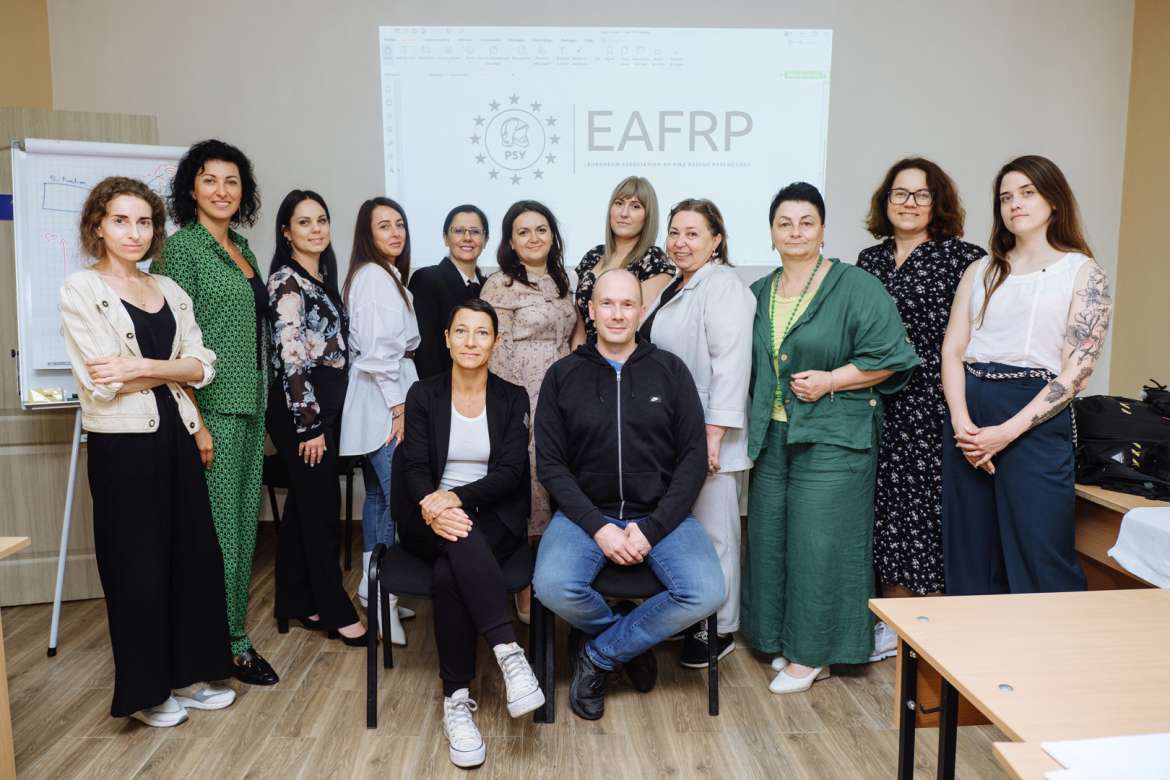

Recently, the training course on emergency psychology and cognitive behavioral therapy, which was prepared by French experts for lecturers of the Faculty of Health and Physical Education, the Faculty of Postgraduate Education and the Faculty of Medicine, has been completed at the Uzhhorod National University.
Recall that the 40-hour theoretical module was held in May 2023, followed by a five-day practical course in July, which was presented to Ukrainian colleagues by cognitive behavioral therapy specialists, French university professors Sylvain Goujard and Audrey Gache Boileau.

Together with Sylvain Goujard, the course participants learned emergency psychology techniques, in particular, stabilization of panic and recovery from dissociation, and with Audrey Gache Boileau, they studied the specifics of using the psychoeducation method for grief and post-traumatic stress disorder (PTSD). The practical sessions covered the socio-psychological analysis of the state of grief, shock, as well as the functional features of interviewing patients in order to, firstly, psychologically triage traumatized individuals, and secondly, obtain the optimal amount of information for providing further assistance. The participants discussed protocols for rapid response to traumatic situations that occur as a result of the performance of official duties by rescuers, police officers, doctors, and military personnel and can have a negative impact on the mental health of specialists. In wartime conditions, the competencies acquired during the practical module are in high demand in Ukraine and require constant deepening and testing.

The training, funded by the Fondation de France, was part of the implementation of the Memorandum of Educational Cooperation between the Uzhhorod National University, the Université Savoie Mont Blanc (France) and the Association Européenne de Psychologie Sapeur-Pompier (AEPSP). The latter, together with the French university, developed the content of the training and its adaptation to the context of the war in Ukraine. The curriculum, which has been successfully tested in France, aims to better understand the impact and importance of emergency assistance to victims of violence, as well as to professionals facing situations with high trauma potential.




